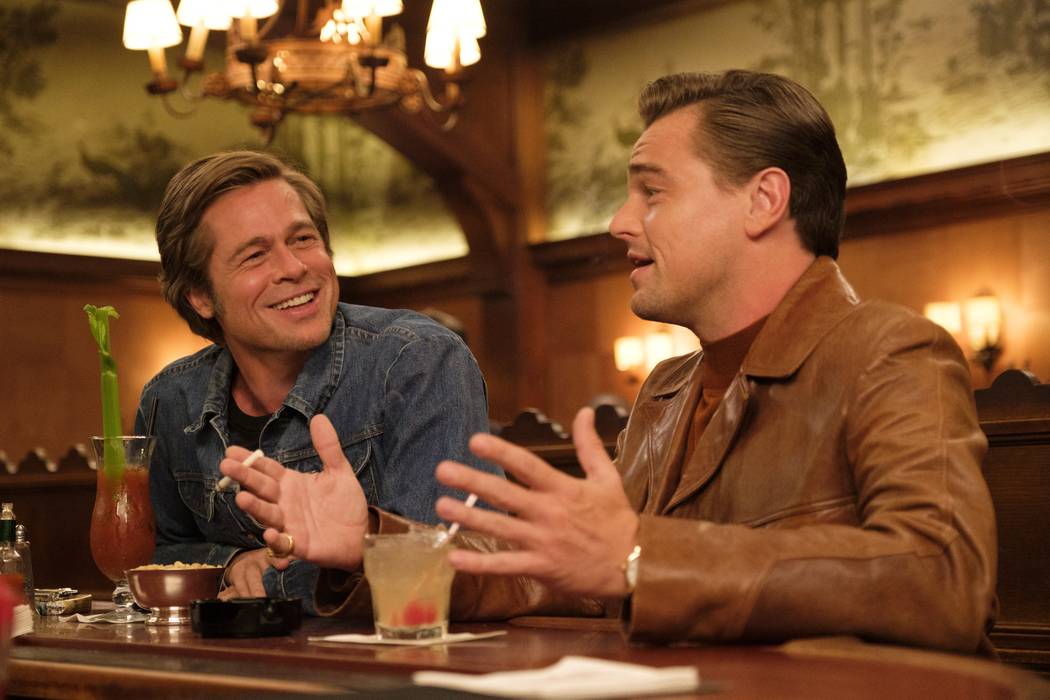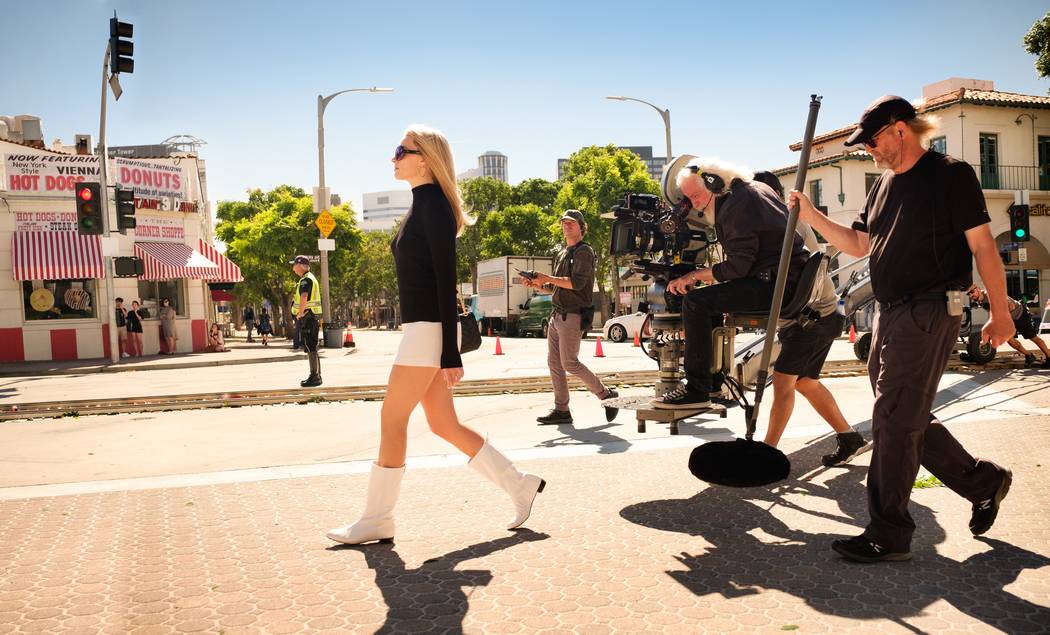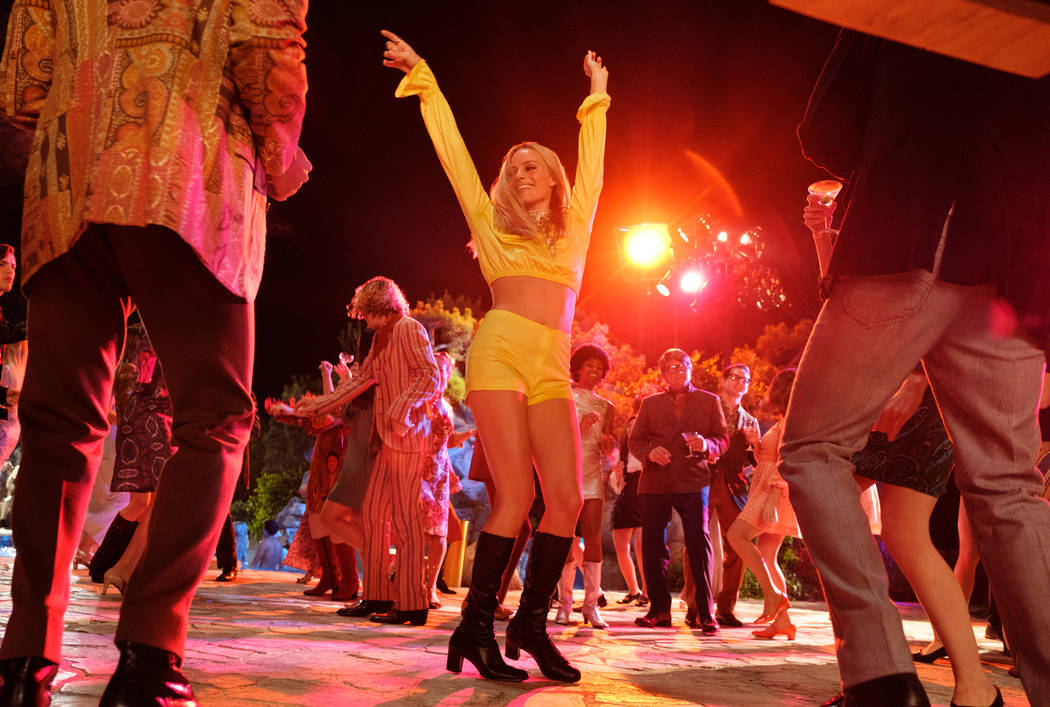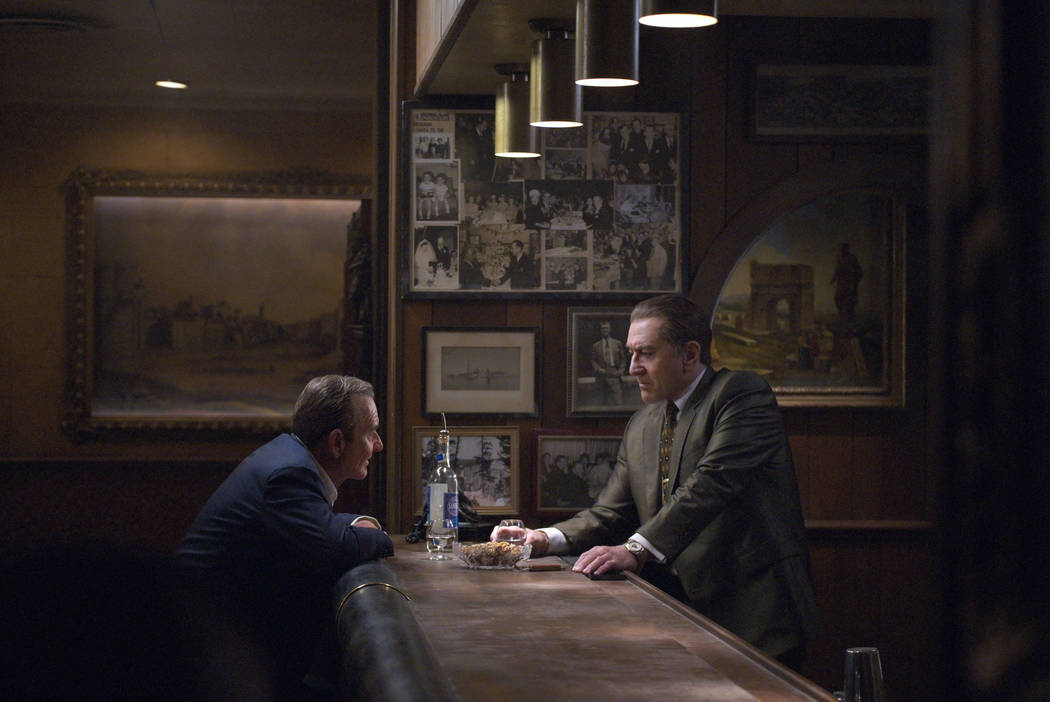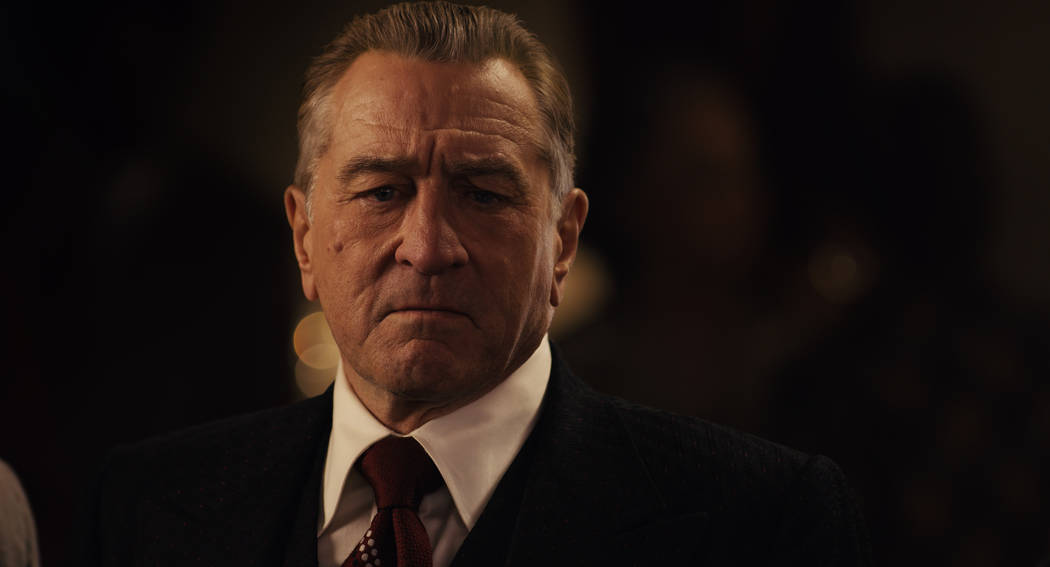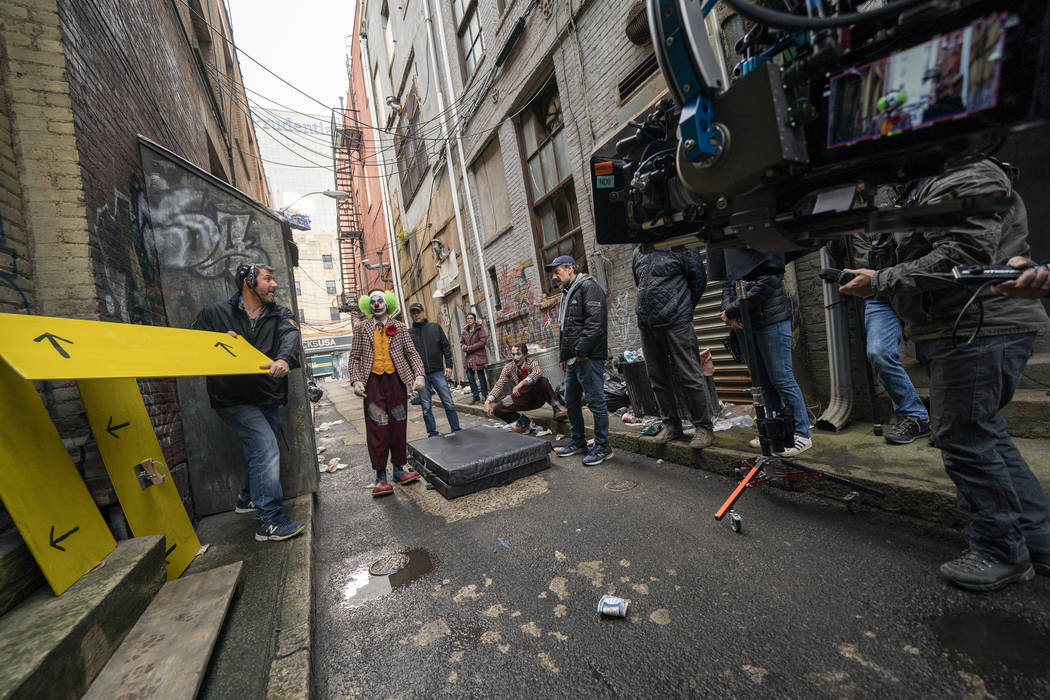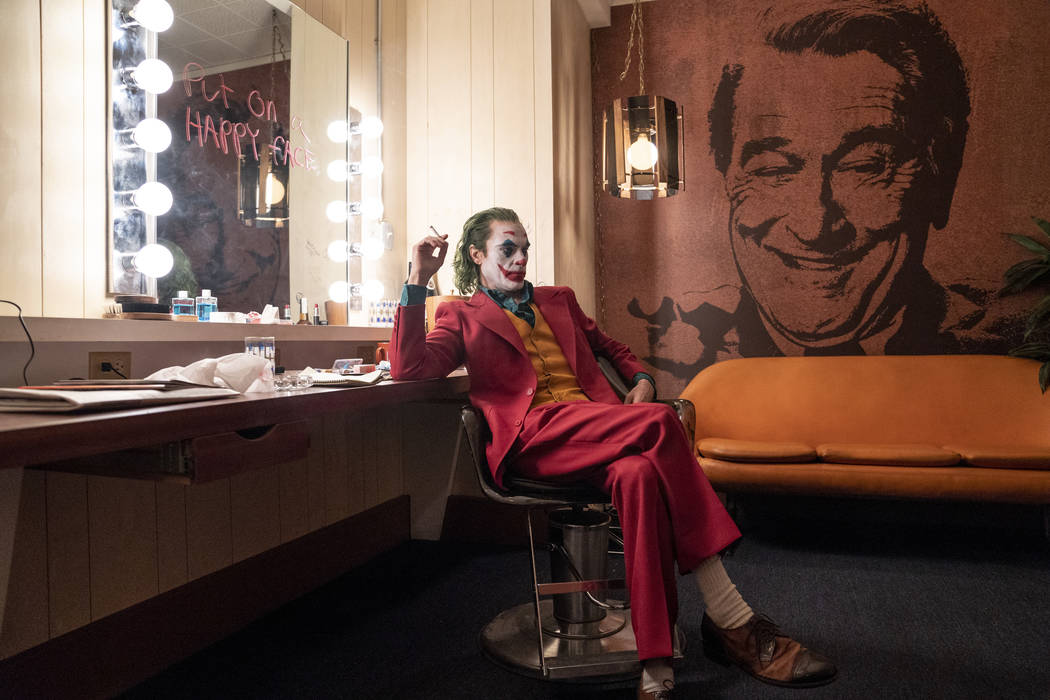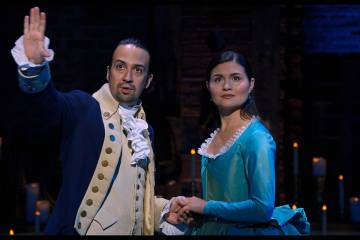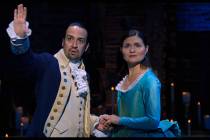Oscar voters soak up nostalgia with best picture nominees
Trying to get inside the heads of Oscar voters is almost never a good idea.
After all, this is the same lot that, the last time they were called upon, decided “Green Book” — a movie about a barely literate Italian American goon who “educates” a sophisticated African American classical pianist on the importance of Little Richard and fried chicken — was the best that cinema had to offer.
Of the nine nominees for best picture at Sunday’s Academy Awards (5 p.m., ABC), only “Parasite” and “Marriage Story” are contemporary tales, and the former is set entirely in Seoul and told in Korean.
The other seven take place in the distant past, with only “The Irishman,” a sprawling story spanning 1949 to 2000, touching on years after 1981.
Given that, it’s hard not to think that, like many of us, the last thing Oscar voters wanted to do was spend time contemplating the state of America in 2019.
Scorsese’s greatest hits
The nostalgia is strong with this field, especially when it comes to “The Irishman.”
Martin Scorsese’s mob drama reunites the legendary director with two of his favorite muses: Robert De Niro as labor official/hit man Frank Sheeran and Joe Pesci as mafioso Russell Bufalino. Combine the “Goodfellas,” “Casino” and “Raging Bull” vibes that waft off that trio with the addition of Al Pacino as Jimmy Hoffa, and “The Irishman” plays out like a sort of gangland’s greatest hits. It even digitally de-ages its stars to the point where they sort of resemble themselves in their prime.
If “The Irishman” brings to mind some of Scorsese’s biggest hits, “Joker” is practically Scorsese cosplay.
The supervillain’s origin tale is centered on aspiring stand-up comic Arthur Fleck (Joaquin Phoenix) and his descent into madness on the mean streets of New York — err, Gotham City. What transpires is basically “The King of Comedy” meets “Taxi Driver,” with De Niro along for the ride as the host of a popular late-night talk show.
“Joker” may not have been the best movie of 2019, but with its focus on an angry white man who feels like he’s been cast aside and looks to solve his problems with a gun, it’s certainly the 2019-iest.
Simpler times
In telling the story of one of car designer Carroll Shelby’s greatest triumphs, “Ford v Ferrari” focuses on the years 1963 to ’66 — three decades before he would move his automotive empire to Las Vegas — as a celebration of American exceptionalism and an era when the world’s best cars were built in Detroit by humans instead of machines.
The World War I drama “1917” — believed to be the favorite to take home the best picture prize — recognizes the determination of the British military in a time when the best way to warn of an impending ambush was to send two soldiers on a harrowing, seemingly impossible mission across enemy lines.
“Jojo Rabbit” latches onto the possibly antiquated notion that love can triumph over hate — even if the hater in question is a naive little boy in Nazi Germany who chooses a petulant, wacky Adolf Hitler as his imaginary friend.
Oscar voters also warmed to the comfort food of writer-director Greta Gerwig’s new take on the Civil War-era feminism of “Little Women” — although not enough for her to crack the once again all-male best director category.
Hollywood’s glory days
Moviegoers have come to expect many things from Quentin Tarantino.
Over-the-top violence. Exceptionally verbose characters. Lingering shots of women’s feet.
Heart-on-his-sleeve sentimentality, though, has rarely been among them — at least until his “Once Upon a Time … in Hollywood.”
Set in 1969 Los Angeles, the movie follows faded Western star Rick Dalton (Leonardo DiCaprio), his longtime stuntman turned assistant, Cliff Booth (Brad Pitt), and to a lesser extent, Rick’s new Cielo Drive neighbor: actress Sharon Tate (Margot Robbie).
The night Charles Manson’s acolytes murdered the pregnant Tate — along with four others, including celebrity hairstylist Jay Sebring, who still has family in Henderson — has long been considered the end of Los Angeles’ innocence.
While Tarantino revisits those glory days, Rick, who feels increasingly out of touch with modern Hollywood, can’t help but miss the 1950s, when he was the star of NBC’s “Bounty Hunter” and hippies hadn’t yet taken over the town.
The result, the best example of this year’s trend of wistful nominees, is a revisionist fairy tale stacked between two thick slices of nostalgia.
Seeking an escape
“Joker” and “1917” may be intense, but the only truly heavy nominee is “Marriage Story,” which chronicles the often bitter divorce proceedings between an actress (Scarlett Johansson) and a theater director (Adam Driver).
Even that, though, is a far cry from some of the darker stories — “Moonlight,” “Spotlight,” “12 Years a Slave” — that have been named best picture over the past decade.
Instead, there’s an inherent escapism — optimism, even — in many of the nominees.
Considering everything going on in the world, it’s hard to blame Oscar voters for that.
Especially since, out of all nine nominees, there isn’t a single “Green Book” in the bunch.
Contact Christopher Lawrence at clawrence @reviewjournal.com or 702-380-4567. Follow @life_onthecouch on Twitter.
Actors doing double duty
Robert De Niro, who stars in "The Irishman" and plays a supporting role in "Joker," isn't the only actor with key roles in two best picture nominees.
His "The Irishman" co-star Al Pacino also turns up in "Once Upon a Time … in Hollywood" as the producer who convinces Rick Dalton (Leonardo DiCaprio) to head to Italy, where he revives his career in spaghetti Westerns.
Laura Dern, the presumptive best supporting actress winner for her role as a divorce attorney in "Marriage Story," portrays March family matriarch Marmee in "Little Women."
Tracy Letts, who's in "Little Women" as Jo's publisher, has one of the most memorable scenes in "Ford v Ferrari" as Henry Ford II.
They have nothing on Scarlett Johansson, though. She's nominated for best actress for her performance as the divorce-seeking thespian in "Marriage Story" and for best supporting actress for her role as the mother of the impressionable Hitler-loving boy at the center of "Jojo Rabbit."



